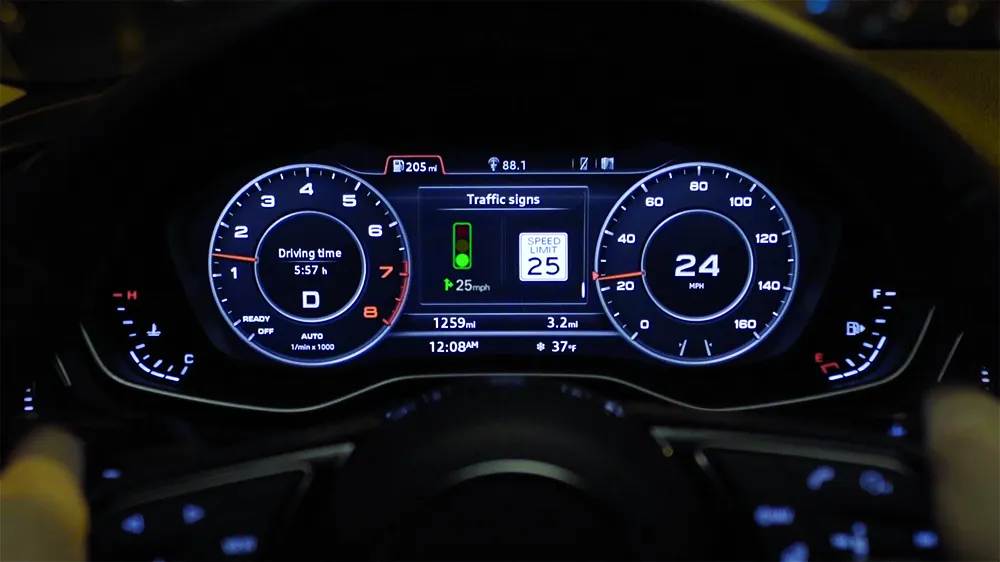Ten major vehicle manufacturers have committed to making automatic emergency braking (AEB) a standard feature on all new vehicles built, the US Department of Transportation, its National Highway Traffic Safety Administration (NHTSA), and the Insurance Institute for Highway Safety (IIHS) announced today.
The announcement, made at the dedication of IIHS's newly expanded Vehicle Research Center, represents a major step toward making crash prevention technologies more widely available to consumers. The ten c
September 14, 2015
Read time: 3 mins
Ten major vehicle manufacturers have committed to making automatic emergency braking (AEB) a standard feature on all new vehicles built, the 324 US Department of Transportation, its 834 National Highway Traffic Safety Administration (NHTSA), and the 7120 Insurance Institute for Highway Safety (IIHS) announced today.
The announcement, made at the dedication of IIHS's newly expanded Vehicle Research Center, represents a major step toward making crash prevention technologies more widely available to consumers. The ten companies,2125 Audi, 1731 BMW, 278 Ford, 948 General Motors, 1844 Mazda, 1685 Mercedes-Benz, Tesla, 1686 Toyota, 994 Volkswagen and 609 Volvo, will work with IIHS and NHTSA in the coming months on the details of implementing their historic commitment, including the timeline for making AEB a standard feature. The Department and IIHS encourage all other light-vehicle and trucking manufacturers to bring automated vehicle technology to all vehicles on US roadways as soon as possible.
Automatic emergency braking includes a range of systems designed to address the large number of crashes, especially rear-end crashes, in which drivers do not apply the brakes or fail to apply sufficient braking power to avoid or mitigate a crash. AEB systems use on-vehicle sensors such as radar, cameras or lasers to detect an imminent crash, warn the driver and, if the driver does not take sufficient action, engage the brakes.
"We are entering a new era of vehicle safety, focused on preventing crashes from ever occurring, rather than just protecting occupants when crashes happen," said US transportation secretary Anthony Foxx. "But if technologies such as automatic emergency braking are only available as options or on the most expensive models, too few Americans will see the benefits of this new era. These ten companies are committing to making AEB available to all new-car buyers."
"The evidence is mounting that AEB is making a difference," said IIHS president Adrian Lund. "Most crashes involve driver error. This technology can compensate for the mistakes every driver makes because the systems are always on alert, monitoring the road ahead and never getting tired or distracted."
AEB technology is already showing benefits in the real world. Several studies, including a recent report from IIHS, show that AEB technology can reduce insurance injury claims by as much as 35 percent. The 10 manufacturers committing to across-the-board AEB represented 57 percent of U.S. light-duty vehicle sales in 2014.
The announcement, made at the dedication of IIHS's newly expanded Vehicle Research Center, represents a major step toward making crash prevention technologies more widely available to consumers. The ten companies,
Automatic emergency braking includes a range of systems designed to address the large number of crashes, especially rear-end crashes, in which drivers do not apply the brakes or fail to apply sufficient braking power to avoid or mitigate a crash. AEB systems use on-vehicle sensors such as radar, cameras or lasers to detect an imminent crash, warn the driver and, if the driver does not take sufficient action, engage the brakes.
"We are entering a new era of vehicle safety, focused on preventing crashes from ever occurring, rather than just protecting occupants when crashes happen," said US transportation secretary Anthony Foxx. "But if technologies such as automatic emergency braking are only available as options or on the most expensive models, too few Americans will see the benefits of this new era. These ten companies are committing to making AEB available to all new-car buyers."
"The evidence is mounting that AEB is making a difference," said IIHS president Adrian Lund. "Most crashes involve driver error. This technology can compensate for the mistakes every driver makes because the systems are always on alert, monitoring the road ahead and never getting tired or distracted."
AEB technology is already showing benefits in the real world. Several studies, including a recent report from IIHS, show that AEB technology can reduce insurance injury claims by as much as 35 percent. The 10 manufacturers committing to across-the-board AEB represented 57 percent of U.S. light-duty vehicle sales in 2014.








